P
|
|
|
Born c1922 (Labour)
Arthur Padmore was a railwayman and stood as a councillor for the first time in 1964 for Humberstone and was elected. He was defeated in 1967
|
|
Died: October 1981 aged 65 (Communist Party)
Sid Page taught English at Stonehill High School for 25 years, having previously worked at Roundhill School. When he became President of NUT Mid-Leicestershire Association in 1976, he said that: “Cutting education is unlike cutting anything else. A temporary shortage or cut can be made up later, but you cannot replace the missed years of a child’s education.” He died a year after he retired.
Sources: Leicester Mercury, 24th February 24th, 16th October 1981 author’s personal knowledge
|
|
Born: 1908
R.T. Paget was a local barrister, the son of Guy Paget. He was educated at Eton and Trinity College. In 1935, he attracted local attention after being expelled by the blackshirts from Mosley’s meeting in Granby Halls. Mosley threatened to sue him. He unsuccessfully contested Northampton for Labour in the same year, eventually winning in 1945. He later became a member of the House of Lords.
|
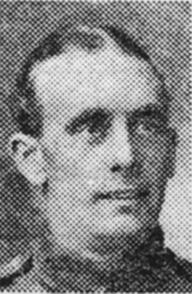 |
Born c1887, Wellingborough, died Calais, France, 1919
In the early 1900s, John Thomas Pantling lived in Belgrave and worked in the shoe trade. He was a Socialist and member of the local Temperance movement. At the end of the First World War, he was a private in the Royal Ordinance Corps, based at Calais. Though he had not fought at the front, he worked alongside many of those who had been injured and moved to lighter duty. He was well known and popular with the men and was co-founder of the Calais Soldiers and Sailors Association. As their spokesman, he negotiated a reduction in the working week from 6½ to 6 days, better food and accommodation with the Army authorities. He also distributed the banned ‘Daily Herald’ to troops in the area.
He had already been arrested for supposedly inciting the men, when, in January 1919, he was arrested for delivering a ‘seditious’ speech demanding demobilisation, to an assembly of soldiers. He was accused of being a ‘Bolshevik’ and was incarcerated in the Calais ‘Bastille,’ where he faced court martial. When the news of Pantlings’ plight reached the Ordnance Depots in the Calais region, mutineers smashed open the jail and let him out. As the authorities tried to recapture him, 4,000 troops marched behind brass bands towards the headquarters which they quickly surrounded. A deputation entered to demand the release of Private Pantling. The authorities capitulated and he was returned to his camp. But by now some 20,000 men had joined the mutiny and the strike was spreading. French workers were cooperating and a total embargo was placed upon the movement of British military traffic by rail. In fact the rail stoppage was a significant factor in the escalation of the struggle. 5,000 infantrymen due to return home, finding themselves delayed, struck in support of their own demand for immediate demobilisation.
Some barrack room lawyer pointed out that Pantling could be rearrested at any time. It was decided that it would be to his advantage to be court-martialled whilst the soldiers were still in control. His acquittal would then be binding and he would be safe from further arrest. Reluctantly, the officers had to agree. However, just over a week later, he died from influenza. His comrades said that his ill treatment whilst in prison was the main cause of his death. £150 was raised through a collection for his Widow.
Sources: David Lamb, Mutinies, Gloden Dallas & Douglas Gill The Unknown Army, Leicester Mercury, 21st March 1919, Andrew Rothstein, The Soldiers Strikes of 1919
|
 |
Born: Woolaston, Northants., 4th January 1872, died Leicester April 1955 (I.L.P.& Labour Party)
George Parbury was the youngest of a family of 13. His father, a chemist, came to Leicester in 1877 and died a few years later. George had practically no education and at the age of 10 was working in the shoe trade, at that time the work was fetched from the factory and done at home. He continued to work in the boot and shoe trade in and out of employment, tramping from town to town in search of work. In those years of no work he frequently had an empty cupboard and grate.
He joined NUBSO in 1889 and took part in the great lock out of 1895. He joined the I.L.P. the same year. He was elected a permanent official of NUBSO from 1905 and was Secretary of No 1 Branch from 1912 until his retirement in 1932. This branch had 10,000 members and was thought to be the largest trade union branch in the world. He was first elected to the City Councillor in 1921 for Abbey ward and served into the 1940s. He became an alderman in 1934 and Lord Mayor in 1939.
During the war, as Lord Mayor, he took a prominent part in the launching of innumerable efforts to aid war charities, recruiting campaigns and other drives. Among the most successful was his Spitfire Fund, which raised nearly £35,000 which was, apparently, nearly enough to buy a squadron of planes bearing the city's name. In May 1940, he told the conference of the Printing and Kindred Trades Federation: "I been a firebrand in my union, but we must have no strikes and no lock-outs now, We have got to stand together.”
He was an enthusiastic sportsman and rarely missed boxing contests staged at Granby Halls and the Boulevard Rink. He numbered many well-known boxers among his personal friends - one of his favourites being 'Gipsy' Daniels.
Sources: Leicester Pioneer, 15th February 1924, Leicester Evening Mail 4th April 1955, Daily Herald 23rd May 1940, Leicester City Council, Roll of Lord Mayors 1928-2000
|
|
(Bookseller and printer)
John Pares of Humberstone Gate was arrested in 1798 by a King’s messenger on suspicion of treasonable practices and taken to London for examination. In his absence his house was searched and his papers seized. He was held for a fortnight, but the Home Office was unable to find sufficient evidence against him and he was released. In 1802, he was convicted at the Borough Quarter Sessions of publishing a song of seditious tendency and was sentenced to 12 months in prison.
John Pares was one of the leaders of the Leicester Hampden Club, founded in 1816, a time when Hampden Clubs were expanding rapidly in the provinces, enabling radicals to meet together for political debate and readings. The Corporation regarded the Leicester Hampden Club as a hot-bed of revolutionary activity and the Town Clerk paid a spy to infiltrate their meetings. This led to Pares narrowly escaping prosecution for publishing two seditious pamphlets which had been read out at a meeting of the Club.
The following year, the Town Clerk reported Pares to the Home Office as `a dangerous fellow' who would be `better out of the way. This was a time of further repressive legislation - Habeas Corpus was again suspended - and many Leicester radicals were arrested. He was charged with publishing a ‘seditious, blasphemous, and malicious libel’- to wit an extract from Volney’s The Ruins of Empires, entitled ‘A Dialogue between the Privileged Class and the People.’ Although he was eventually acquitted, the expense of his defence nearly ruined him.
Thomas Jefferson liked Volney's book and translated it anonymously into English. In the book Volney calls for all nations to adopt the principle of separation of church and state and constructs a universal system of morality without reference to God.
Sources: Leicester Journal, 16th July 1802, A. Temple Patterson, Radical Leicester, Leicester 1954, Manchester Mercury, 13th May 1817
|
|
Died: June 1984 aged 55 (Labour Party)
Gordon Parker was full-time organiser for the Labour Party in Leicester from 1970-79. He had previously worked for the party in Derby and Grimsby. In the late 1970s he became very critical of the National Executive of the Labour Party for failing to take action against entrist groups like Militant active within the Labour Party. He believed that members belonging to these groups should be expelled.
During the 1970’s, when the National Front was organising demonstrations in Leicester, he urged people to stay away from the counter demonstrations being organised by Inter-Racial Solidarity and Unity Against Racism. In 1979, he became Labour’s assistant regional organiser for the south. He fell to his death from the sixth floor of a multi-storey car-park in Woking.
Sources: Leicester Mercury, 12th June 1984
|
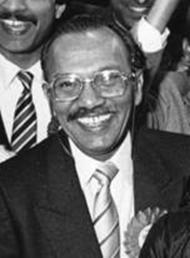 |
Born: Bhanvad, Gujurat State, India, July 1937, died: December 1997 aged 60 (Labour Party)
In 1949, Gordhan’s family moved to Dar-Es-Salam in Tanzania where his father owned a shop. Following the Africanisation policies in Tanzania, he came to Leicester in 1966. In Tanzania he had worked as a clerk in the Internal Revenue Office, but in Britain he worked as a bus conductor. From 1969, he worked as a clerk for East Midlands Gas. He joined the Labour party in 1970 and, in 1977, was the first Asian to be elected to the County Council.
In 1979, he was elected to the City Council and in 1987, he became Leicester’s first Asian Lord Mayor. In 1995, there was a fierce battle for selection for Abbey ward, in which he threatened to go on hunger strike if he was deselected. (which he was ) He subsequently became councillor for the Rushey Mead Ward and died on a cross channel ferry.
Sources: Leicester Mercury, 28th February 1987, 20th March 1995, Leicester City Council, Roll of Lord Mayors 1928-2000, author’s personal knowledge
|
|
Died: May 1990 aged 60 AUEW
Bridget Paton was born in Scotland and first came to Leicester in 1948 to work as a nanny. Two years later she was an assembler at a local engineering works and joined the union.
“The difference between the way the bosses live and the lot of the workers has always seemed wrong to me. Initially I was the only woman member in my section and there was only one other woman member in the whole factory. Then there was a dispute about piece rates and we encouraged other women to join.”
She became a shop steward, then a delegate to her branch, then district president. By the early 1970s, she was convenor of the AUEW shop stewards at the Patridge Wilson factory on Evington Parks Road. In May 1975, she was appointed the first woman officer of the male-dominated Amalgamated Union of Engineers in 1975 and remained district secretary of the AUEW for many years. She was an advocate of employers providing childcare for working mothers. She was a staunch Catholic and was, in terms of union politics, regarded as being on the right. She died of cancer just a few months before she was due to retire.
Sources: Leicester Mercury, 26th May 1975, 7th December 1988, 16th May 1990
|
|
Born: circa 1853? (I.L.P.)
Henry Payne was a bricklayer and member of the Building Trades Council and of the Operative Bricklayers' Society. He had been a union member since 1886. In 1894, he lived at 7 Stanley-terrace, Humberstone Road. That year he was co-opted to the School Board in 1894 as a representative of the Building Trades Council. This was very controversial since he would replace a Conservative churchman and the board was a battleground between non conformists and the Church of England. Payne was also a member of the I.L.P. a co-operator and a secularist and John Potter, who nominated him had to play down his political views. That year he was also an I.L.P. candidate for the Board of Guardians.
Henry Payne later stood as one of two I.L.P. candidates for the Board and was defeated. He advocated one meal a day for children whose parents could not provide them with food. He was opposed to theological teaching in schools saying it should be left to parents and Sunday Schools. He wanted limits on class size and the use of union men for school contracts for building work.
Following the resignation of Mrs Saunderson, who had been the I.L.P.’s successful candidate, the other parties on the Board blocked his co-option. However, in 1897, he was elected coming top of the poll with 24,618 votes-more than twice that of the second of the list. He did not stand for election in 1900.
Sources: Leicester Chronicle - Saturday 17 February 7 10th March, 8th December 1894, Leicester Daily Mercury, 30th November 1894
|
|
Born c1832 (Leicester Democratic Association & Leicester Republican Association)
Samuel Payne was active in the radical and republic movements of the 1870s. He lived in Knighton Street, close to the Royal Infirmary and was a shoemaker and Congregationalist Preacher. The Leicester Working Men’s Reform Association of the 1860s, became the Leicester Democratic Association in 1871 and Samuel Payne was its chairman. He was a supporter of the radical politician Charles Dilke.
In 1871, the Democratic Association had 500 paid up members and was a strong supporter of P.A. Taylor’s republicanism. He was active in critic of the influence of the Church on the school board though he favoured favouring Secular rather than Secularist education, criticising the Bishop of Peterborough for confusing the two.
He recollected seeing a Chartist procession with a banner inscribed: ‘More pigs - less parsons,’ he felt the school board should have ‘more men less parsons.’ In January 1872 the Leicester Democratic Association changed its name to the Leicester Republican Association and he became its president. The objects of the Association were:
1.The repeal of the laws of primogeniture and entail, with forcible sale of all uncultivated land, and repeal of the Game Laws.
2. Equal electoral districts, universal suffrage, vote by ballot, payment of members, and triennial Parliaments.
3. The substitution of direct for indirect taxation and a national poor rate.
4. The disestablishment and disendowment of all State churches.
5. The abolition of all Royal grants, and sinecure pensions, and the hereditary House of Lords.
6. The establishment of a Republican form of government by our present representative system.
On universal suffrage Payne said he did not mean the version of universal suffrage of the old Chartist days which only extended to men:
There was no reason why the suffrage should not be extended to a man 20 years of age and of sound mind; and very little tenable argument could be advanced against giving it to female householders. While they had a woman governing the country there could be no argument against a female voting for a member of Parliament. While they had women sitting on Boards of Guardians and School Boards, if was no great stretch to ask that they should have a vote at Parliamentary elections.
In the late 1870s, he spoke at several open air meetings on behalf of the Leicester Branch of the Workmen's Peace Association. In 1896, he attempted suicide, by cutting his throat.
Sources: Midlands Free Press, 13th June 1871, Reynold's Newspaper, 18th August 1872, Leicester Guardian, 23rd July 1873, Leicester Chronicle, 29 September 1870, 4th March 1871, 13th January 1872, 19 September 1896, Census
|
 |
Born: Toronto, Canada, 1874 died: 1936 (furniture manufacturer and Fabian)
Harry Peach’s father came from a Nottinghamshire drapery family and decided to return from Canada to his Midlands roots. The family settled in Oadby when Harry was three years old. Peach went to Wyggeston Boys Grammar School and then to Oakham Public School in Rutland. After a brief period working as an estate agent with his father, he set up as a bookseller at 37 Belvoir Street, Leicester specialising in manuscripts and early printed books. His love of literature and appreciation of good quality printing lasted throughout his life. He also realised that good quality printing was an effective tool both for his business and other interests. With his first wife Marina (May), he was a member of the Independent Labour Party.
He brought an exhibition organised by the Anti-sweating League to Leicester in 1906 during Ramsey McDonald’s election campaign. This imaginatively presented exhibition, which illustrated the grim conditions of work through actual demonstrations as well as photographs and factual information, was Peach’s first experience of the impact of the media.
Along with the designer Ernest Gimson, Harry Peach, gave Leicester a prominent position in the history of design in the early twentieth century. He was influenced by Morris and the ideas of the Arts and Craft movement and worked with Benjamin Fletcher at the newly formed School of Art and Design. Peach owed his interest in craft and design to his socialist attitudes. Harry Peach tried to bring together what many people felt were two distinct and antagonistic activities, art and industry. He felt that the efficiency of industry was not incompatible with the individual flair of the artist. This faith led him to found the Dryad Works for Handicrafts and Metal Work in 1907. His company produced cane furniture and household goods with an emphasis on handwork and craft. It later became a supplier of handicraft materials.
However, he began to view the trade unions as narrowly sectionalist, pouring scorn on the demand for piecework rates that he regarded as being irrelevant and detrimental to the quality of the finished product. In the 1920s, he crusaded against advertising finding many examples of unsightly advertising in rural locations. He was one of the founders of the Council for the Preservation of Rural England and also of the Design in Industry Association.
He was a rambler, a member of the Leicestershire Footpaths Association, a Fabian, President of the Literary and Philosophical Society, an ardent campaigner for the preservation of rural England, and a keen folk dancer. His firm Dryad is now Specialist Crafts
Sources: Pat Kirkham: Harry Peach, Dryad and the D.I.A., David Nash, Secularism, Art and Freedom
|
%20Peach.gif) |
Born: 1873 died: December 1913 (I.L.P. & Labour League of Women)
Marina Peach was a member of the I.L.P. and was a founder member of the Labour League of Women of which she was president when she died. She was a friend of Margaret MacDonald and had shown a great deal of interest in infant health. She was a committee member of the National Union of Women Workers and had been instrumental in forming the Leicester Health Society in 1905. She died, aged 40, after giving birth to her seventh child. As a memorial to her, an ‘Infant Consultation Centre’ was opened in Highcross Street to promote Mothercraft in an area of high infant mortality. The property was financed by family and friends and its running costs were met by public subscription.
Sources: Shirley Aucott, Mothercraft and Maternity,1997
|
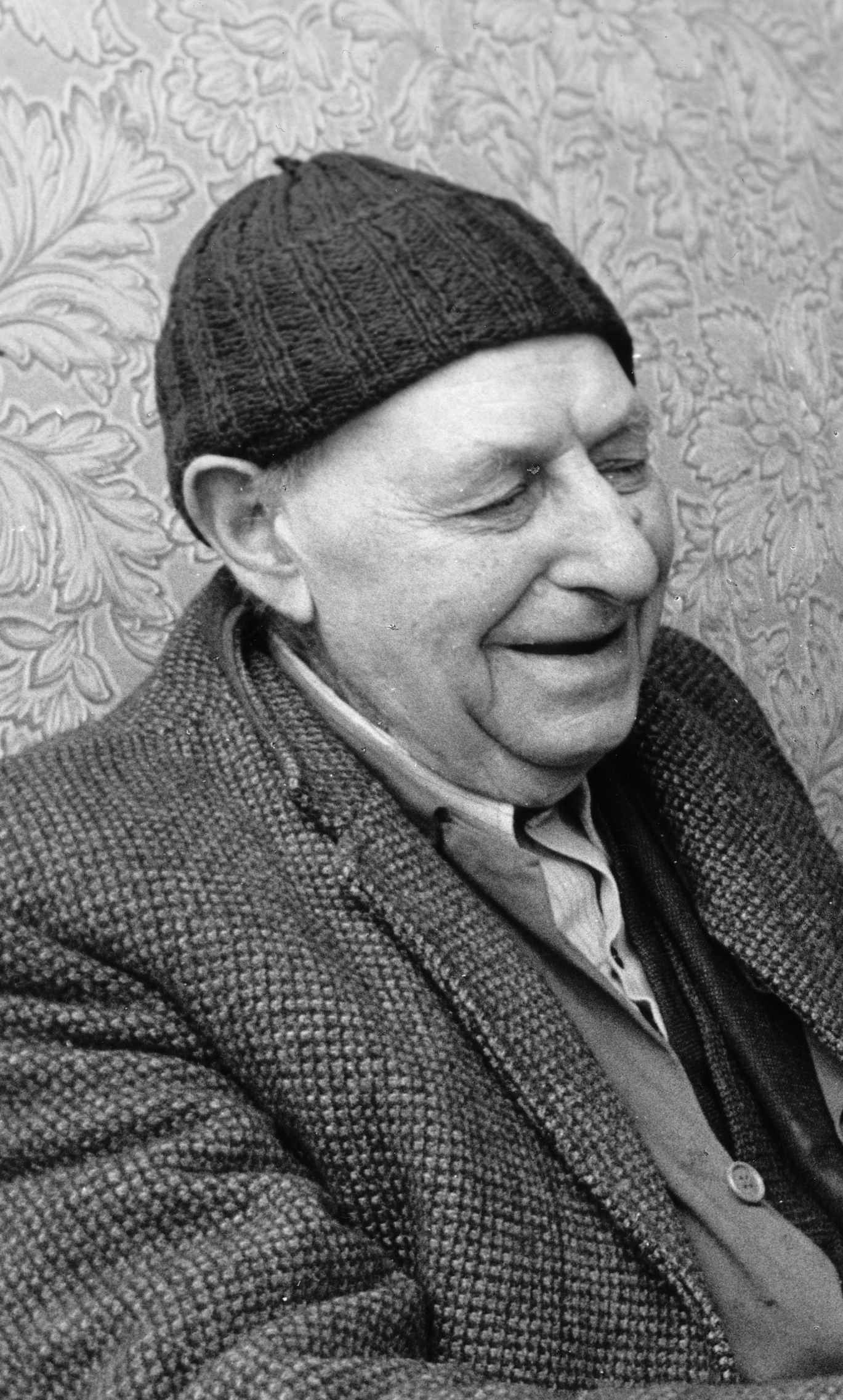 |
Born: Bedford, May 15th 1900, died: 1994
Teddy Peacock left school at the age of 14 and worked in a foundry where in 1916 became an apprentice brass moulder. The foundry made guns for battleships and he was consequently exempted from conscription. Eventually, he joined up and served in Germany until 1920. He was then retrained as a bricklayer and moved to Leicester in 1922. He became an AUBTW member and delegate to the Trades Council. He was secretary of the Trade Council’s Permits Sub-committee during the General Strike and was later active in the anti-fascist movement in the 1930s. He was secretary of the local branch of the National Council of Labour Colleges for 12 years. He served as President of Leicester Trades Council in 1934, 1946 & 1958 and was a member of Scraptoft Parish Council for 26 years.
Source: author’s personal knowledge
|
|
Born: Leicestershire 1875 died: Leicester 1908 (I.L.P.)
W.T. Pepper was the son of a coffee house manager and in 1900 was working as a carpenter and joiner. He was active in the I.L.P. teaching at the I.L.P.'s adult classes on subjects such as Chaucer. In 1905, he was appointed editor of the Leicester Pioneer and that year wrote several reports on the mach of Leicester's unemployed to London. These appeared in both the Pioneer and Labour Leader. He must have accompanied the march, as his reports come from towns on the route. He died aged about 33 in 1908.
Source: Labour Leader 9 September 1904, 15 September 1905, Census returns
|
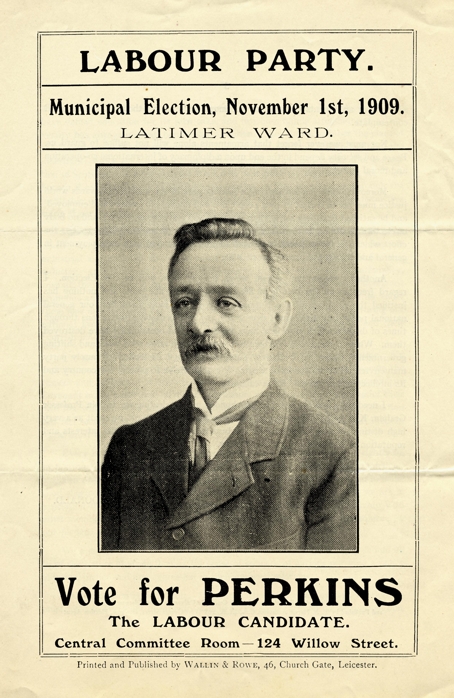 |
Born: Leicester c1859, died: May 24th 1923 (I.L.P.& Labour Party)
Nathaniel Perkins was an I.L.P. member from its early days in the 1890s and was a Town Councillor for Latimer ward from 1909 until his death in 1923. He was also a member of the Leicester Labour Party Executive and a board member of the Leicester Co-operative Society. He was also a member of the Bond Street Friendly Society.
He opposed the First World War and in August 1914 wanted the Town Council to petition the government to stay neutral in the conflict. He told a meeting in Market Place that:
It is the people, not kings, who suffer as a result of war. It is the working class who have to do the fighting and pay the bills as well.
In 1919, he successfully moved a motion at the Town Council deprecating the practice of paying landlords and agents 'key money.'
Nathaniel Perkins was a fancy framework knitter, as was his father and his brother John. After World War One, he became an assurance agent.
Sources: Leicester Daily Post 6 August 1914, 26 April 1919, Leicester Chronicle 3 May 1919, Census returns
|
|
Born: Pytchley May 1793, died: Leicester 25th December 1846
In January 1824, 30 year old Thomas Ryley Perry was an itinerant comedian with a pregnant wife. Although he had been a comedian for eight years, he was now unemployed and wrote to the atheist, republican writer Richard Carlile to ask him for a job in his Fleet Street book shop. This was a really dangerous job since eight of Carlile's shop workers had been sent to prison for selling Carlile's The Republican and various forbidden books. A contemporary commented that ‘no sooner did a person stand behind the counter in the shop, than he was taken to Newgate.'
Perry got the job, but did not meet Carlile, whom he closely resembled, since Carlile was still in prison for not paying his fines for the blasphemy and seditious libel he committed in 1819. Carlile's shop and publication The Republican were maintained by Carlile's wife, sister and volunteers. In the cause of republicanism, universal suffrage, atheism and freedom of the press, Carlile served at total of nine years in prison.
Perry's work in the shop did not last long. In June 1824, Perry and several others were arrested and put on trial in London, for publishing a blasphemous, impious, and wicked libel, of and concerning our religion. This was allegedly contained in Tom Paine's Age of Reason, Palmer's Principles of Nature, and some editions of Carlile's Republican.
Perry was sent to Newgate prison for three years as a common felon. In August, his wife took his place in the shop and when she visited him, she was subject to strip searches by a turn-key. Friends were only allowed to communicate with him through an iron grill. A subsequent petition to parliament for his release came to nothing. Whilst in prison, he and his colleagues were helped by public donations and from September 1824 they produced the Newgate Monthly Magazine which was published by Carlile to aid their cause. Among his contributions to the magazine were Thoughts on the Present System of Education. and The Stage versus the Pulpit. In the latter article he decried the increase in bigotry from preachers and the clergy directed towards respectable drama in provincial towns. "No sooner is the Theatre open in a populous town, than every method which malice or spleen can devise, is resorted to, in order to deter the public from attending."
Perry's son had been born in Wellingborough and on his release and he returned to live there. He remained one of Carlile's volunteers and he was sent by him to Worcester to obtain the release of George Baker in June 1833. By August of that year he living in Leicester and was listed as a seller of the unstamped press selling the Cosmopolite and the Gauntlet from premises in Wheat-street. In September 1833, he spoke at a dinner at the Edward Sansome's Union Inn in nearby Wharf-street to celebrate Richard Carlile's most recent release from prison.
The following month, he produced a handbill advertising a meeting to form a Reading-Room For The Working Classes, Without Resorting To A Public-House. It was a crowded meeting which supported his proposal, but Perry managed to offend the Baptist propagandist J.F. Winks when he questioned Wink's assertion that the Bible was the source of all radicalism. The meeting was held at Perry's house and shop in Bridge-street, Leicester which had also become a centre for the sale of the radical and unstamped press. Twelve days after the meeting, he was arrested for selling unstamped publications. He told the magistrates that:
he had no hesitation in boldly declaring that he had sold unstamped almanacs. He considered it a moral, justifiable, and honourable act, to give every man an opportunity of obtaining a calendar without an expensive stamp, and would have a year ago have commenced his present course of resistance to the stamp-duty, had it not been that he then entertained hope that the Ministry would have removed the grievance. They had, however, not done so, and he was therefore determined to throw himself into the gap of persecution, imprisonment, or even death itself, in opposition to the obnoxious imposition. There were also very many others imbued with similar spirit, and if the Magistrates were prepared to proceed against all who were ready to step into his place, he gave them notice that they must build new gaols.
He refused to pay his fines of £20 and was taken to the Borough jail where from Debtor's Room he sent reports to Carlile's Gauntlet. Nine months later, he unsuccessfully petitioned parliament for his release He was financially supported by local friends, republicans, trade unionists and infidels like Edward Sansome and John and Richard Seal. Whilst he was in prison, the Leicester Mechanics Institute was initiated without him under the aegis of J.F. Winks and other middle class radicals. An anonymous correspondent later wrote to the Gauntlet that:
The reverend printer (Winks) will also convince the working classes what a deadly sin it is in them to imitate their betters by reading newspapers on a Sunday, or studying philosophy and the science of politics. He will also show his congregation the exact depth of the bottomless brimstone pit, to which your friend PERRY will be consigned for daring to sell cheap tracts which have not issued from his immaculate press or obtained the sanction of a conclave or dissenting cardinals. He concluded by saying that Perry was the founder of the Mechanics' lnstitute at Leicester. It is his offspring, and his alone. The printing parson dare not deny the paternity. The fact is too well known. .....Whatever benefits the operatives of this town and neighbourhood may derive from this establishment, will be the result of Mr. Perry's spirited, intelligent, and independent exertions.
On his release from prison, Perry set up a 'commodious room' in his premises on Bridge-street which was known as the West Bridge News and Reading Room and in March 1834 began to give lectures there on Sunday evenings. The first being on Religion, the second being on the Historical Foundation of Christianity. This seem to be in part retribution for Winks to whom he wrote:
You know me to be an honester man than yourself, and consequently you hate me. I am once more at liberty from that prison to which I have some shrewd suspicions you were instrumental in sending me by your loose and slanderous insinuations.....
It is not known how long Perry ran his Sunday evening lectures, but he was prominent in the Working Men's Association, founded in 1836 and in 1839, he was running a chemist and druggist shop on Wharf-street and then on Market-street. He had been a very loyal supporter of Richard Carlile, but as the latter's atheism slid away, Perry switched his allegiance. He now became an active member of Leicester Branch of the Universal Community Society of Rational Religionists. (Owenistes) In April 1840, he was co-chair of the debate between Brindley, the anti-socialist and Hollick the socialist. In June that year, he petitioned the House of Lords to complain of the attack by a mob on Robert Owen in Burslem in which Brindley was implicated. In 1841, Perry is recorded as the chairman of the Leicester Branch of the Owenites, many of whom were later to form the Leicester Secular Society.
In 1845, Perry presided at a meeting held in the Social Institution by the Anti Persecution League. This organisation was set up to campaign for the release of the Thomas Patterson and others imprisoned for for selling blasphemous books in Scotland. The meeting was also addressed by G.J. Holyoake (also recently imprisoned for blasphemy). Perry told the meeting that:
The only thing to be afraid of is the suppression of inquiry, which has a direct to foster error and abuse. The greatest step which society can ever make towards justice and rationality is the acknowledgment of the most unlimited right to all individuals to hold and express whatever opinions seem to them most true.
Shortly before the Owenite Social Institution closed c1845, he gave two lectures critical of Christianity. In 1847, J.W. Billson provided a report of his death in Holyoak's paper the Reasoner:
Mr. Perry had been declining in health for nearly twelve months, the last nine of which he suffered severely. Owing to a decline in circumstances he was compelled to take refuge in the Union Workhouse. It is, however, pleasing to learn, that during the whole of the time he was there every attention was paid by the conductors to his comfort. .... He continued to the last a firm defender of the right to freely discuss political and religious opinions, and his manner in doing so was at all times so gentlemanly and amiable, that he was universally respected. When Mr. Billson last saw him he asked Mr. Perry if he was comfortable, when he replied, ‘I am more than comfortable, I am happy.
Source: Morning Post, 20th July 1824, The Republican, 16th January 1824, 3rd Jun 3, 1825, The Newgate Monthly Magazine, September & October 1824, Journals of the House of Lords, Volume 7, The Man 11th Aug 1833,The Gauntlet 16th June, 22nd September, 10th November 1833, 16th February 1834, Leicester Chronicle, 30th November 1833, 8th April 1837, Public Discussion on Socialism, held at The New Theatre, Leicester, 1840, The Movement 29th January 1845, The Reasoner, no 33 January 1847, Public Discussion on Socialism, between Mr Brindley and Mr Hollick, April 1840, Theophila Carlile Campbell, The Battle of the Press, 1899, Christina Parolin, Radical Spaces: Venues of Popular Politics in London, 1790 - c1845
|
|
Born: circa 1882
Dorothy Pethick was the younger sister of Emmeline Pethick-Lawrence and arrived in Leicester in 1909 with her companion Dorothy Bowker. They had just been released from prison having served a sentence for breaking windows in Downing Street and Whitehall. Both had been force fed after going on hunger strike and they came to Leicester to recuperate at 11 Severn Street. Dorothy Pethick was appointed oraniser and open an office at 17 Highfields Street. Under her influence, the local WSPU branch began to strengthen its membership of young middle-class women. She was arrested and imprisoned again in London again in 1910.
Both the Women’s Freedom League and the WSPU planned to boycott the 1911 census. They urged individual supporters to either refuse to complete their census form or to evade the enumerator by absenting themselves from home on census night. In order to provide shelter for would-be evaders, Dorothy Pethick organised an all-night party at the Suffragettes shop at 14 Bowling Green Street. About 20 Suffragettes, varying in age from 17 to 50 attended. Dorothy left Leicester in 1912.
Sources: Sources: Richard Whitmore, Alice Hawkins and the Suffragette Movement in Edwardian Leicester, Women and Her Sphere: Suffrage Stories: The 1911 Census: The Leicester Suffragettes’ Mass Evasion.
|
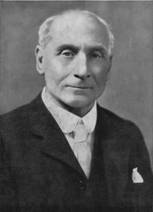 |
Born: London 1871, died: 1961 (I.L.P.& Labour Party)
Frederick Lawrence was the son of Alfred Lawrence a wealthy Unitarian and member of the Liberal Party. Frederick was educated at Eton and Trinity College, Cambridge, where he achieved a Double First and became President of the Union. At university Lawrence was influenced by the ideas of Alfred Marshall, who argued that the knowledge of economics should be applied to help the poor. While studying to become a lawyer, Lawrence gave free legal advice at the Nonconformist settlement Mansfield House in the slums of East London. He also worked with Charles Booth collecting information on poverty in the area.
While working with the poor, Frederick Lawrence met the social worker, Emmeline Pethick. The couple fell in love but Emmeline refused to marry Frederick because he did not share her socialist beliefs. It was not until 1901, when Frederick had been converted to socialism, that Emmeline agreed to marry him. On marriage, he added his wife's name to his own. In 1901, Frederick Pethick-Lawrence became the owner of The Echo, a left-wing evening newspaper. He recruited friends from the socialist movement such as Ramsay MacDonald and H. N. Brailsford to write for the newspaper. James Keir Hardie introduced Frederick and Emmeline Pethick-Lawrence to Emmeline Pankhurst. As a result Emmeline joined the Women's Social and Political Union (WSPU). In 1907 Frederick and Emmeline started the journal Votes for Women.
Emmeline Pethick-Lawrence served six terms of imprisonment for her political activities during this period. In 1912 the WSPU organised a new campaign that involved the large-scale smashing of shop-windows. Frederick and Emmeline both disagreed with this strategy, but Christabel Pankhurst ignored their objections.
As soon as this wholesale smashing of shop windows began, the government ordered the arrest of the leaders of the WSPU. Christabel escaped to France but Frederick and Emmeline were arrested, tried and sentenced to nine months imprisonment. They were also successfully sued for the cost of the damage caused by the WSPU.
Pethick-Lawrence was opposed to Britain's involvement in the First World War and joined with E. D. Morel, Arthur Ponsonby and Charles Treveylan to form the Union of Democratic Control (UDC). Over the next couple of years the UDC became the leading anti-war organisation in Britain. Although he was forty-six years old, the government attempted to conscript Pethick-Lawrence in 1917. He refused, but instead of being imprisoned, he was assigned to a farm in Sussex until the end of the war.
In the 1923 General Election, Pethick-Lawrence won West Leicester for Labour, having the satisfaction of beating Winston Churchill, who was the Liberal candidate. Although an expert on economics, Pethick-Lawrence was a poor orator and he failed to shine in debates in the House of Commons. As a result, he was not given a post in the 1924 Labour Government. He became Financial Secretary to the Treasury during the 1929-31 government. In 1931, he was defeated and became MP for East Edinburgh from1935-1945. He was Secretary of State for India and Burma 1945-47.
Sorces: Howes, C. (ed), Leicester: Its Civic, Industrial, Institutional and Social Life, Leicester 1927
|
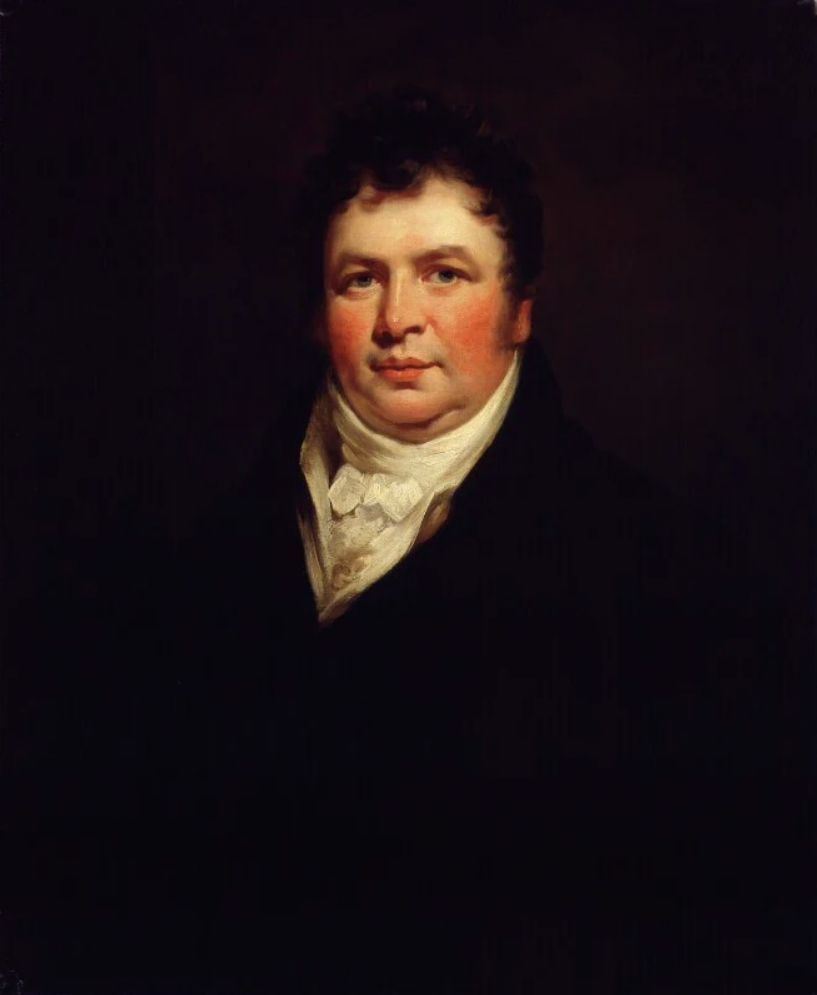 |
Born London, 1767, died, Brighton, 1840
Richard Phillips was a friend of Joseph Priestley and of Henry Hunt, a patron of Bamford and other radical contemporaries. He was brought up by his uncle who was a brewer in London's Oxford Street. He disliked the brewing trade and decided to become a schoolmaster and in 1786 became an usher at a school in Chester. As a teacher of mathematics and other sciences, he arrived in Leicester in 1788, where he set up a commercial academy in Bond Street. Other accounts say he taught in Mary Linwood's school where she also attended his classes. His mother had remarried and was now living at Whissendine and he attributed his life long vegetarianism to returning to his mother's farm where his favourite pet calf had been slaughtered and cooked in his honour.
In 1789, he opened a hosier's shop, which he stocked with borrowed capital and then in the summer of 1790, he started a business as a stationer, bookseller and patent medicine vendor. He became a dealer in canal shares and in 1792 was one of the few to profit from the canal mania. He acquired a printing-press and as business began to prosper, he branched out into the sale of pianofortes, music, caricatures and prints. In his pamphlet room on corner of Gallowtree Gate and Humberstone Gate, the works of Thomas Paine and other writers advocating Republican and Freethought principles were provided for public perusal. On 1st July, 1790, he founded a Library, which eventually became the Permanent Library of Leicester. He also established a literary Society and then the Adelphi Society, whose 17 members met in Phillips' schoolroom to study science.
In May 1972, Phillips founded the ‘Leicester Herald,’ with himself as editor assisted by George Bown. The Herald upheld the rights of man in no measured terms and the paper proved a success. As a result of a shortage of copy, Phillips was responsible for hoaxing some of the Herald's readers when a jumble of type was inserted to fill a space. It was claimed this was a report just in from the Dutch Mail and there was no time to translate it.
The Herald's radical stance brought Phillips to the attention of the corrupt Tory Corporation, which had welcomed the 1792 proclamation against seditious publications. For a time, Phillips skilfully avoided prosecution, then in January 1793, a shoemaker named Jackson was paid to purchase a copy of Tome Paine's The Rights of Man from his shop. At the time Paine's book had not yet been declared seditious and was being sold by other bookshops in the town, so it appears that Phillips was singled out by the Corporation for harsh retribution. At the trial, Phillips recollected that the court had a prosecutor who was also the court's clerk and who was the son and partner of the High Sheriff who also selected the juries. He was sentenced to eighteen months imprisonment in Leicester gaol which was at the time being built. So he was imprisoned in a corner of the County goal, which was then under the control of the much romanticised figure of Daniel Lambert.
According to William Gardiner, the sentence was thought too light and every effort was made to ensure that his imprisonment was as miserable as possible. Though a large sum was offered for a room at the gaoler's house, he was put in a vile apartment at the bottom of the felon's ward and locked up every evening at six o'clock. Gardiner relates that during visits he was locked between grated doors while songs were sung threatening death to jacobins and levellers. "the wretch that was set over him would sit down and say he was ordered to remain, that we might not talk treason!" The prison was described as a wretched hole and Phillips was surrounded by drunken gaolers who had been given special instructions to prevent his contact with George Harley Vaughan, who was a fellow member of the Adelphi Society. Vaughan had been imprisoned for having a Corresponding Society handbill in his possession. He was to be kept apart from Phillips since, according to one Alderman and baker, they might "corrupt one another, and ought not be allowed even see each other." Phillips later thought it likely that the offending handbill was produced in his office after his trial. Whilst in gaol Phillips wrote to William Cowper who wrote him a sonnet whose first verse reads:
PHILLIPS! the suff'rer less by law than pow'r.
Though prison'd in an adamantine hold,
May bear a heart as free and uncontroul'd
In his dark cell, as in a summer's bow'r
In 1793, the Adelphi Society had been forced to disband when the Corporation expressed its concern over their experiments with electricity, thought to be at least as dangerous as their politics. They had erected a high pole in the shape of a spear on the top of their Bond Street rooms with the intention of drawing electrical fluid from the clouds; Phillip's ultimate aim was to regulate rainfall with the means of electrical conductors, however the experiment was confounded in the public mind with the construction of infernal machines.
Phillips continued to edit the ‘Leicester Herald’ from behind bars, thought the paper's political stance was considerably toned down. After his release from prison, in 1795, his premises, with its stock of valuable books and scientific instruments were destroyed by fire which spread from neighbouring premises. After this, he ceased the publication of the 'Herald' and with the funds derived from his insurance policy, he moved to London. In 1795, he began the Monthly Magazine which ran for nearly thirty years. His subsequent varied and influential career is beyond the remit of this article except to say that he built a considerable publishing empire and was made Sheriff of of London and Middlesex in 1807-1808. During that year he initiated prison reforms and prevented any executions from taking place. He received a knighthood from King George III.
In 1836, Phillips was heartened when the Corporation Bill removed the corrupt Leicester Corporation from office and elections were held. He described it as "as the most effective concession obtained by the people since the Norman Conquest." He offered this advice to the new Council as a safeguard against loosing popularity:
Men in power, and I speak from experience and observation, are apt forget that ...... All constitutional powers are a mere balance between wealth & rank on one side, and poverty and weakness on the other: wealth and rank are able to protect themselves. Kings and Magistrates are created, not to add strength to the too strong, but to the feeble. If this maxim were kept steadily in view, no authorities would ever grow unpopular.
Sources: Leicester Chronicle, 1st December 1827, 16th January 1836, Leicester Journal, 10th January 1845, A. Temple Patterson, Radical Leicester, F. S. Herne, An Old Leicestershire Bookseller, Journal of the Leicester Literary & Philosophical Society, Howard Williams, The Ethics of Diet - A Catena, 1883, William Goodman, The Social History of Great Britain During the Reigns of the Stuarts, Volume 2,1844, William Gardiner, Music and Friends: Or, Pleasant Recollections of a Dilettante, Volume 1, Dictionary of National Biography, vol. 45
|
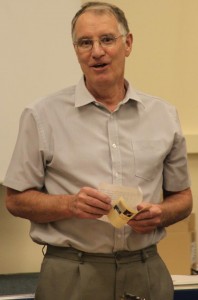
|
Born: Leicestershire, 1944, died: April 6th 2012, aged 67 (National Union of Mineworkers)
Known to his friends as ‘Benny,’ Malcolm Pinnegar was the figurehead of the ‘Dirty Thirty.’ This was the group of 30 Leicestershire miners who took strike action during the 1984-5 strike. The Leicestershire NUM, did not support the national strike and the 2,500 NUM members at Leicestershire's four pits carried on working. Their nickname began as an insult but soon became a badge of honour and the Dirty Thirty went more than a year without wages during the national strike.
Malcolm grew up and lived in Stoney Stanton before moving to Hinckley. When the national strike was called in March 1984, he was working as a header (forging tunnels) at Bagworth Colliery. When the thirty strikers realised that picketing Leicestershire collieries would be in vain, they travelled the UK, Europe and even visited America, raising awareness and funds for the striking miners and their cause.
Darren Moore, of Burbage, was an apprentice at Bagworth and the youngest of the Thirty, said:
"Benny took me under his wing and I looked up to him. When we realised we were going to be on our own, he came forward as a natural leader, he had a charisma about him. He kept our spirits up and whenever there was a problem we went to him. Like the rest of us, Benny bitterly opposed Thatcher's pit closure programme and believed it was his duty to stand up for his fellow working man. He was convinced that if we didn't then the industry would be decimated, and he took no pleasure whatsoever in being proved right.”
"He didn't see himself as a hero, just someone doing what was right who wasn't afraid to go against the grain for what he believed. He was a proper, rank and file trade unionist but also a great bloke and family man. I'm going to miss him."
Malcolm is also immortalised in a song about the Dirty Thirty by Liverpool folk singer Alun Parry, with the lyrics:
They were called The Dirty Thirty
So they wore that name with pride
As the only striking miners
They stood against the tide
And if you call them heroes
They would surely disagree
But The Dirty Thirty and their kin
Are all heroes to me
When the strike ended, the manager of his pit made it as easy as possible for him and the other strikers to go back. However, this was by no means the case at other pits.
Sources: Leicester Mercury, April 9th 2012, BBC Radio Leicester
|
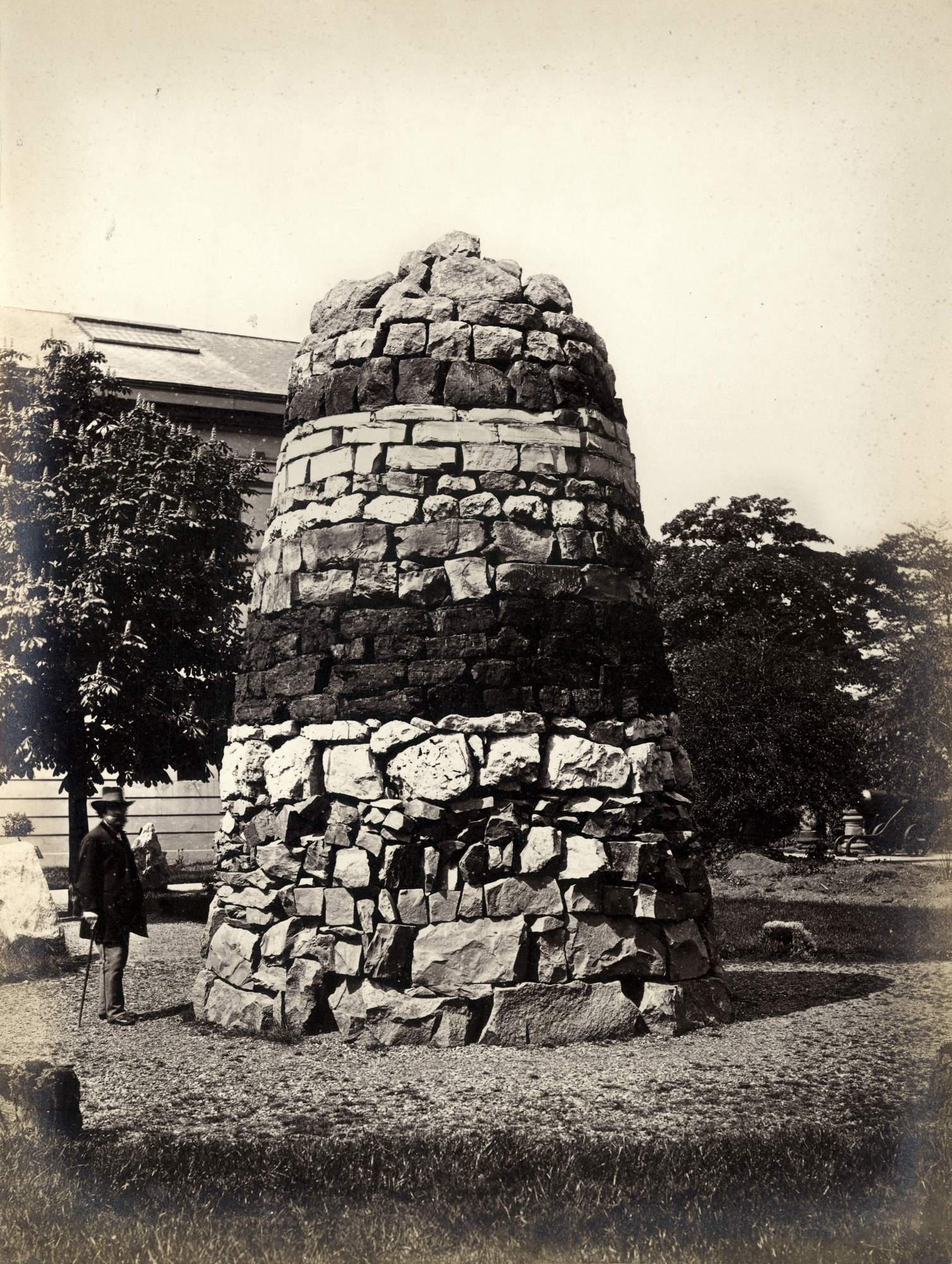
'Plant's Thimble' in 1875, shortly before its removal. It is possible that James Plant is standing next to it. (Leicester Museums)
|
Born: Leicester c1819, died 8th November 1892 aged 75 (Owenite, Secularist, Liberal, Geologist)
James Plant was a member of a talented local family. His father and brothers were all closely connected with the Mechanics Institute. He and his brothers were friends with H. W. Bates, the author of 'The Naturalist on the Amazons.' His brother John was a geologist who helped establish the Leicester Museum and later became curator of the Peel Park Museum, Salford. Brother Frank died in Madagascar while on a visit to study the natural history of the island; brother Nathaniel, another geologist and naturalist, analyzed the coal reserves and fossils of the Rio Grande do Sul in Brazil.
In 1837, James Plant described himself as a young socialist and suggested that Robert Owen should come to Leicester to lecture. He said that there were a few young men who knew something of Owen's socialism, but they had:
"no weight in any proceedings; but we are not idle, we spread a knowledge of these principles as far as our influence goes, but are obliged from circumstances, to be cautious. Yet, there is a vast deal of co-operation in this town; we have, I may say, hundreds of different societies for relieving each other by mutual co-operation; and it seems as if there were only wanted a knowledge of the principles, to at once make them rationalists, in the true sense."
Plant was a bookbinder, manufacturer of boxes and fancy goods. He was an active Owenite who gave financial support to some of Robert Owen's schemes. In 1844, he was a member of the Anti Persecution Union which was then in support of those accused of blasphemy. He was involved with a wide range of bodies: he was secretary of the Leicester News Room, a member of the Board of Guardians and a supporter of the radical wing of the Liberal Party.
He lectured on scientific subjects at the Mechanics Institute and in 1848 attempted to get it to open on Sundays. In 1852, he became the first president and general secretary of the Leicester Secular Society. In 1856, he chaired a meeting in support of Joshua Walmsley's motion to parliament to allow the Sunday opening of museums and in 1858 was secretary to the committee for providing a monument to the veteran radical George Bown.
He had a long standing interest in fossils and in 1851 was listed as the secretary of the local Palaeontographical Society. It is possible that this interest in geology was linked to the fact that the age of rocks was providing an challenge to the Biblical account of the earth's history. In 1862, after a skeleton discovered in the river Soar, he submitted a report which said it was unlikely to be that of Richard III. Plant became a member of the local Literary and Philosophical Society in 1866. In 1868, when the Royal Agricultural Show came to Leicester, he exhibited a collection of all the rocks found in Leicestershire. These were then moved and displayed outside to the Museum in a cone-shaped structure, which became honoured with the name of "Plant's thimble." This column of rocks cost £10 and showed all the hard rocks of Leicestershire in their natural sequence.
By the 1870’s, he employed 50 people, but eventually gave the business up so he could pursue his interest in geology. He became honorary curator of the geological department of the Museum and in his later years he acted as a professional consulting geologist. He was at one time consulting engineer to the Hinckley Waterworks, and was involved in boring operations that took place in the Evington area in the hope of finding coal.
He was repeatedly asked to become president of the Literary and Philosophical Society, but he declined on the ground that he had problems with his hearing. He became an active member of a committee of the British Association which was formed for the collection of information concerning the "erratic rocks." (boulders deposited by glaciers). Be remained a member of this committee, as of the Literary and Philosophical Society, up to the time of his death, keeping the record the erratic rocks of Leicestershire.
Sources: New Moral World, 23rd September 1837, Leicestershire Mercury, 8th January 1848, 26th June 1858, Leicester Chronicle, 11th September 1869, 12th November 1892, 13th January 1894, Plant, J. 1856. On the Upper Keuper Sandstone (included in the New Red Marls) and its fossils at Leicester. Quarterly Journal of the Geological Society of London, Vol.12, 369-37
|
|
Born c1771
Thomas Podd (senior) was a wool sorter by trade. In 1826, Thomas Podd was the Chairman of deputies from different trades which petitioned the King (very respectfully) on behalf of the working classes for the repeal of the Corn Laws. A year later he was Chairman of the Friends to Civil and Religious Freedom which met to campaign against the Test Acts and against the distress now so severely experienced by the working classes, in particular, and for a reform in the representation of the people in the Common's house of Parliament.
Podd was then active in the Leicester Political Union which campaigned for parliamentary reform and in 1833, he was one of those in a reading group which subscribed money to assist the imprison atheist and republican Richard Carlile. He told a diner to celebrate Carlile's release from prison that he was a republican of nearly forty years' standing and gave as a toast, “The speedy annihilation of priests and lords.” He was one of the founders of the Leicester Working Men's Association which opposed the stamp tax on newspapers and was the forerunner of the Chartist movement. It would seem that Thomas Podd junior did not share his father's views.
Sources: Leicester Chronicle, 6th May 1826, 3rd March 1827, 17th March 1832, The Gauntlet 17th February & 22nd September 1833, Leicester Mercury 13th August 1836
|
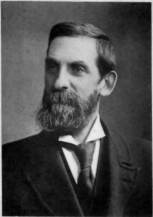 |
Born: Leicester, June 1847, died: 14th January 1907 aged 59
John Potter was born in Leicester, but went to London to work as a parchment maker living in London. On his return to Leicester he was associated with the boot trade and was a member of the Amalgamated Boot and Shoe Makers’ Association. In 1874, he was a delegate to the founding conference of the National Union of Shoe Riveters and Finishers. (later NUBSO)
In 1875, he reported to the Trades Council that his union, No 2 branch of the Rivetters had started a fund to set up a co-operative shoe factory. Although by the 1880s, he had become manager of a Co-operative Grocery store, in 1886 he became one of the promoters of the Leicester Co-operative Boot and Shoe Manufacturing Society. (later Equity Shoes)
The society was set up by discontented workers, following a strike at the C.W.S. works. It was to be a new kind of co-operative factory, taking its inspiration from the Co-operative Hosiery Manufacturing Society. The initiative for its formation came from the strike committee. Unlike the C.W.S. where the workers were just employees, the Equity Society extended the co-operative principle into the place of work, giving the workers a share in the profits and a say in the management. Equity is still in business today.
The founders of Equity were encouraged and advised by Edward Owen Greening (1836-1923) who favoured the development of productive co-operatives to raise the status of workers. He also saw this as part of a general reform of society and an alternative to the capitalism of investor and landlord control. John Potter was president of the Leicester Co-operative Boot and Shoe Manufacturing Society or ‘Equity Shoes’ for 18 years. He was closely connected with the whole of the co-operative enterprise in Leicester, being also on the board of The Leicester Co-operative Printing Society and advisor to the Anchor Society.
John Potter was appointed the first full-time secretary of the Co-operative Productive Federation and the office was transferred to Leicester. By 1894, twenty societies had become members, but the annual subscriptions only totalled £66. In that year the secretaryship passed into the hands of Thomas Blandford, who held the post till his death in 1899. The 1901 census describes John Potter as a ‘boot traveller,’ presumably working for Equity.
John Potter was an earnest and convinced Radical, a member of the Liberal Association and a prominent worker in Westcotes ward. He was a @working man' member of the School Board for 18 years, a keen opponent of vaccination and in c1895 he was asked to stand for a seat on the Town Council. He was a secularist and was Vice President of the Secular Society in the 1890s. He was cremated and his casket was buried in Welford Road cemetary.
Sources: Midlands Free Press 17th April 1875, Leicester Co-operative Society, (1898) Co-operation in Leicester, Leicester Chronicle, 19 January 1907, Leicester Co-operative Record, February 1907 (obit), Greening, Edward O., A Pioneer Co-partnership, 1923
|
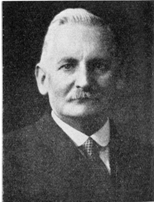 |
Born: Leicester, 1878, died: 1935
John Ernest Potter was one of the sons of John Potter (1848-1907) and was a long-standing member of the I.L.P and Secular Society. He was a delegate to the Trades Council from NUBSO for many years and also served on the boards of several co-operative productive societies. For many years he worked as a clicker at the Equity works and was elected to its General Board before the First World War.
He was a founder of the Workers’ Welfare League of India-an organisation formed for the purpose of serving the interests of Indian workers in this country. The League was established by Shapurji Saklatvala in 1917. Saklatvala was the first secretary of the League’s Indian Committee. Saklatvala was later elected as a Labour then Communist MP for Battersea North.
In 1920, Potter was appointed organising secretary of this body and worked for it for a year in London. Quite how he became active in this anti-colonialist body is not known, but ‘unforeseen circumstances’ caused him to return to Leicester where he remained secretary in an honorary capacity.
In 1921, when the great strike broke out in Madras and several Indians were killed and wounded by police officers, the League made representations to the British Government. Teddy Peacock remembered him was a ‘taciturn sort of a fellow with a moustache who would champion the cause of Indian Independence and the Meerut prisoners at every opportunity.’ In the early 1930s, John Potter lived at at 19 Winton Avenue and was responsible, more than anyone else, for the founding of the Braunstone Tenants’ Association, becomming its first president. He was elected to the board of Leicester Co-operative Society in 1932 and was chairman of the Society's Bakery and Dairy Committee. According to the Leicester Evening Mail, he died of pneumonia, after catching a chill during his first flight in an aeroplane whilst attending the Co-operative Congress in Cardiff.
Sources: Interview, E.A. Peacock, Leicester Oral History Archive, Braunstone Tenants’ Gazette 1935, Leicester Evening Mail 10th July 1935, Leicester Chronicle 13th July 1935.
|
|
Born?
Joseph Potter sat on the Trades Council from the Hosiery Union and also represented the Labour League which had a close association with the land Nationalisation Society. In 1889, he was active in securing the support of the Trades Council for the opening of libraries and museums on Sundays. He became president of the Trades Council in 1890. In 1893, he told the first May Day demonstration that Picton, (the Liberal MP) was or had been “a parson and was a capitalist. They might as well send a leopard in sheep's clothing amongst a flock of sheep as send a capitalist to represent the workers in Parliament.” These sentiments seem to contradict his action the following year when as a member of the Westcotes ward Liberals he nominated an employer rather than a working man candidate in the local elections. This got him in trouble with the Trades Council and George Cores suggested that Potter's sympathies were more on the side of the capitalist and Liberal rather than on the side of the Labour Movement'
Sources: Leicester Mercury 6th November 1889, Leicester Chronicle and Mercury, 13th May 1893, Leicester Daily Post 14th July 1894, Bill Lancaster, Radicalism Co-operation and Socialism
|
|
Born: Northampton, 25th November 1865
On his election as General Secretary of NUBSO in 1908, he moved to Leicester, from Northampton. He had been mayor of Northampton, but did not take part in local government in Leicester. He became a J.P. in 1917 and became Chairman of the TUC in 1921. He was a representative on the International Labour Office (League of Nations). He retired in 1930.
Sources: Alan Fox, A History of the National Union of Boot and Shoe Workers, 1958, Howes, C. (ed), Leicester: Its Civic, Industrial, Institutional and Social Life, Leicester 1927
|
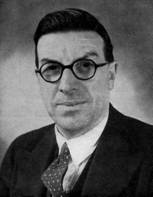 |
Born: Coalville 3rd June 1894 (Labour Party)
At the age of seven years he went with his parents to Church Gresley in South Derbyshire. Here he became a local government officer attached to the gas department. He served in the 1914-1918 war with the Royal Engineers and was attached to a special Company dealing with liquid fire. He was wounded in the chest and was blown up by a shell during a battle at Zillibeke in 1917. Invalided out of the forces in the same year, he returned to the gas industry.
Bert Powell came to Leicester in 1938 and was elected to the City Council the following year for St. Margaret’s ward. He campaigned to get the people of Wharf Street re-housed. He spent many years as a N.U.G.M.W. trade union official and was a delegate to the Trades Council, becoming its president in 1944. He was chairman of the Parks Committee from 1955 to the early 1960s. Under his chairmanship, the City of Leicester Show, which was revived in 1947, was successful in making a profit in 1958 and again in 1959. At one time he studied for the Methodist ministry, however he joined Quakers in 1949. He was Lord Mayor in 1959.
Sources: Leicester City Council, Roll of Lord Mayors 1928-2000
|
|
|
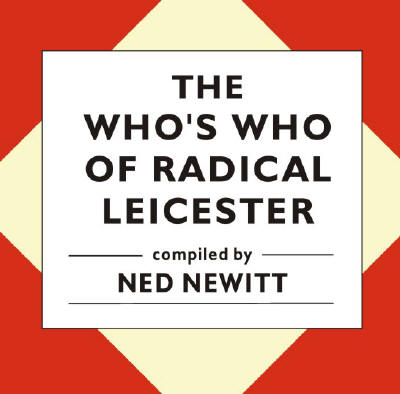 |
Back to Top |
|
© Ned Newitt Last revised: November 20, 2024.
|
|
|
Bl-Bz
Leicester's
Radical History
These are pages of articles on different topics.
Contact
|
